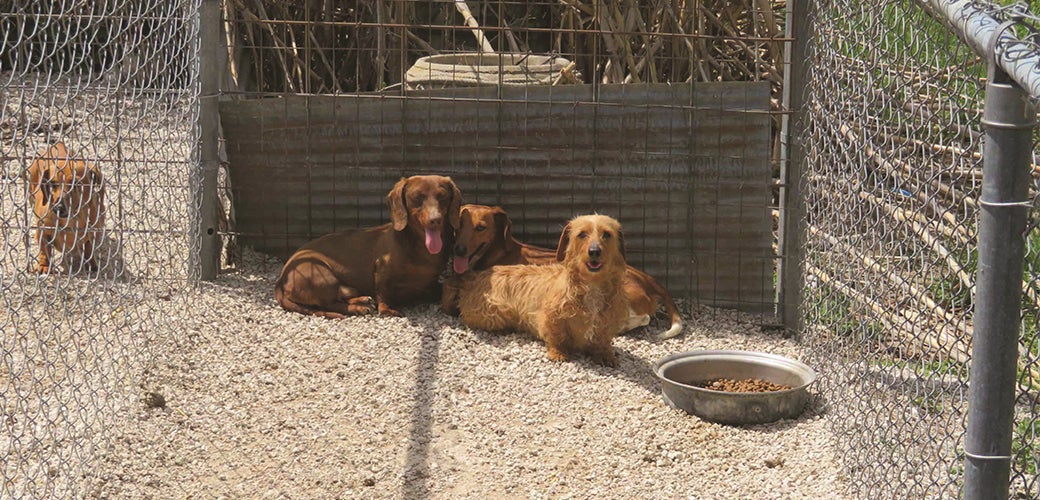
USDA Makes It Too Easy to Get a License Under the Animal Welfare Act

In order to run certain animal businesses, such as commercial breeding operations or zoos, facilities must be licensed by the U.S. Department of Agriculture (USDA) under the Animal Welfare Act. To get a license, facilities need to pass an inspection showing they are providing the care required by the law. In theory, this prevents those not qualified from getting a federal license, but even if facilities fail their licensing inspection, they can try again and again. The result: anyone who wants a license gets one.
Our analysis of these licensing inspections shows that failing an inspection means so little to the USDA that when a facility fails, the USDA will tell them what to fix, and they will conduct a second inspection that same day.
Here are just a few extremely concerning examples:
- When a licensed commercial dog breeder in Missouri was inspected for licensing in September 2021, USDA inspectors found a dog with an irritated eye and a lesion on his eyelid who had not been seen by a veterinarian at all. In addition, the kennel’s waste drainage pipe was broken and leaking feces, food, and other waste on the ground directly next to the building. Inspectors conducted the second inspection later that same day, finding that the licensee had somehow corrected all the problems and allowed them to pass.
- A commercial dog-breeding facility in Iowa was inspected for licensing in January 2022. USDA inspectors found at least 15 housing enclosures in dangerous disrepair, with sharp metal pieces sticking out that could injure the dogs and puppies inside. Another 15 enclosures had filthy, worn-down feeders and food bowls containing buildup of caked-on food and feces. Despite this, the facility was inspected again later that same day and passed.
- When a commercial dog breeder in Ohio was inspected for licensing in June 2023, USDA inspectors noted that he was missing medical records from the last physical checkup of all his dogs (which is required under the Animal Welfare Act). Later that same day, inspectors determined the breeder met all the requirements of the law — even though he must have still been missing complete records — and he passed licensing.
- During a licensing inspection for a zoo in Alabama in October 2023, USDA inspectors found that a parakeet had been killed by a hawk who attacked from outside the aviary. Inspectors also found that some animals had been fed expired food, and two outdoor enclosures did not have enough shelter for the birds who lived there. Yet the zoo was given a second inspection later that same day and somehow passed.
- In January 2024, when a South Carolina zoo was inspected for licensing, USDA inspectors learned that one flamingo and two red junglefowl had been killed by a hawk who entered their enclosures. Despite this clear violation of the Animal Welfare Act, this facility, too, somehow passed licensing later that same day.
The issues documented at these licensing inspections are clearly serious and cannot be corrected within just a few hours. Allowing facilities to pass on the same day violations are recorded is clearly wrong, and USDA’s lax licensing policy puts dogs and other animals in danger by allowing facilities with poor welfare to get, and keep, their licenses.
Federal legislation is needed to change the USDA’s failed policies and to protect animals in licensed facilities. Please use our online form to urge your member of Congress to support Goldie’s Act, a bill that would require the USDA to conduct more frequent and meaningful inspections and enforce the Animal Welfare Act.
